Recent
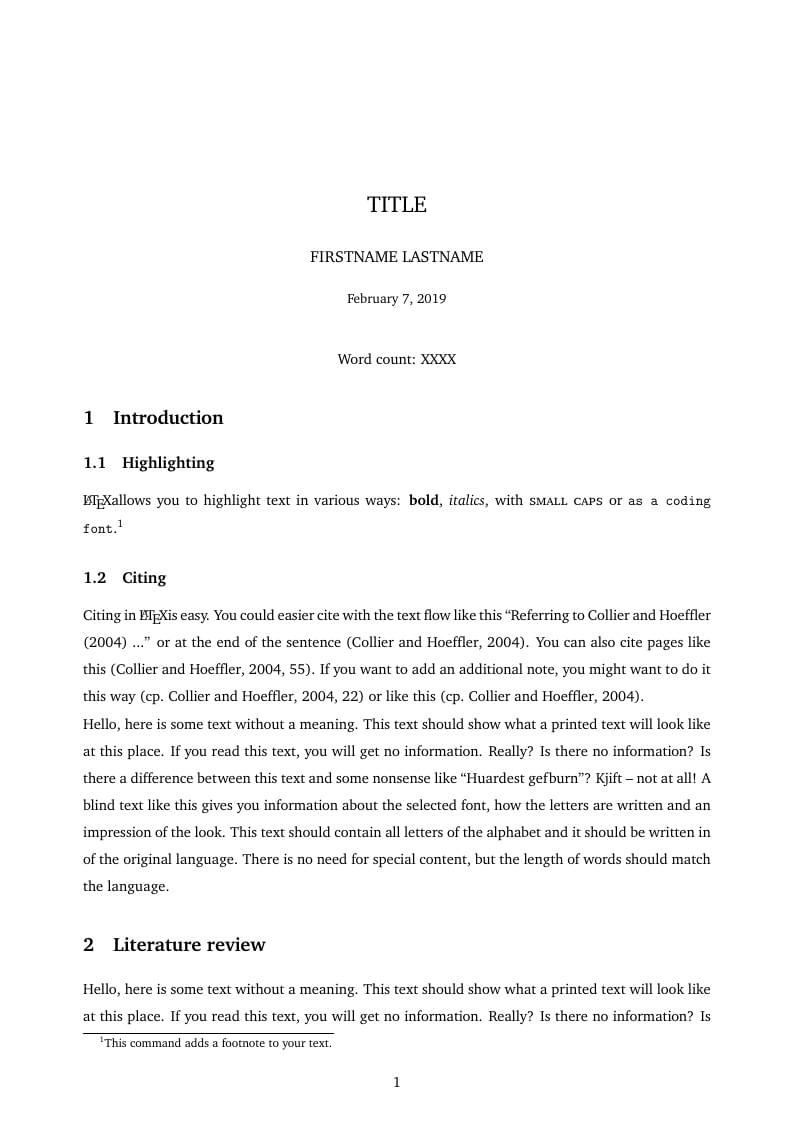
This is a basic template for an empirical term paper at the university. It includes various options that are customizable (e.g. cover page/no cover page) and also gives a quick introduction into the very basics of LaTeX such as highlighting, citing, writing, including tables, figures, and mathematical equations.
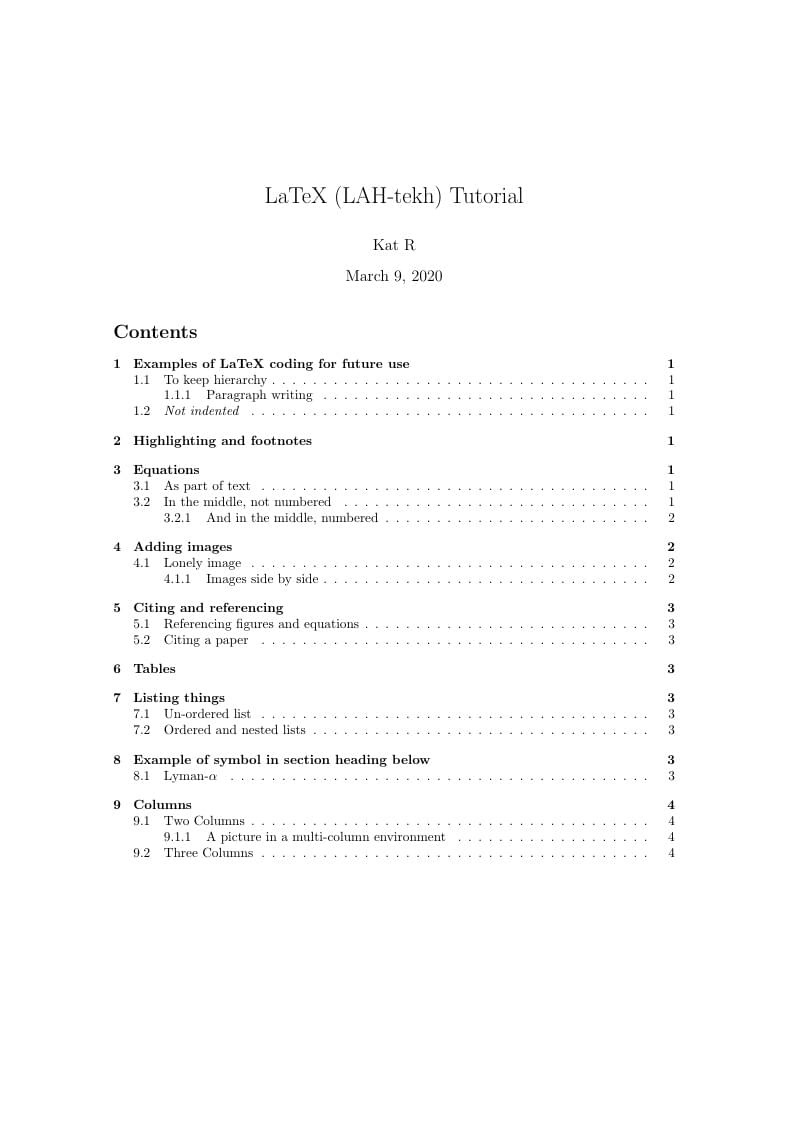
A run through the basic features to compliment the hands-on seminar. Suitable for a workshop/seminar or as a stand alone practice file, intending to get the audience up to speed and ready to venture out on their own. The tutorial template for this seminar can be found here.
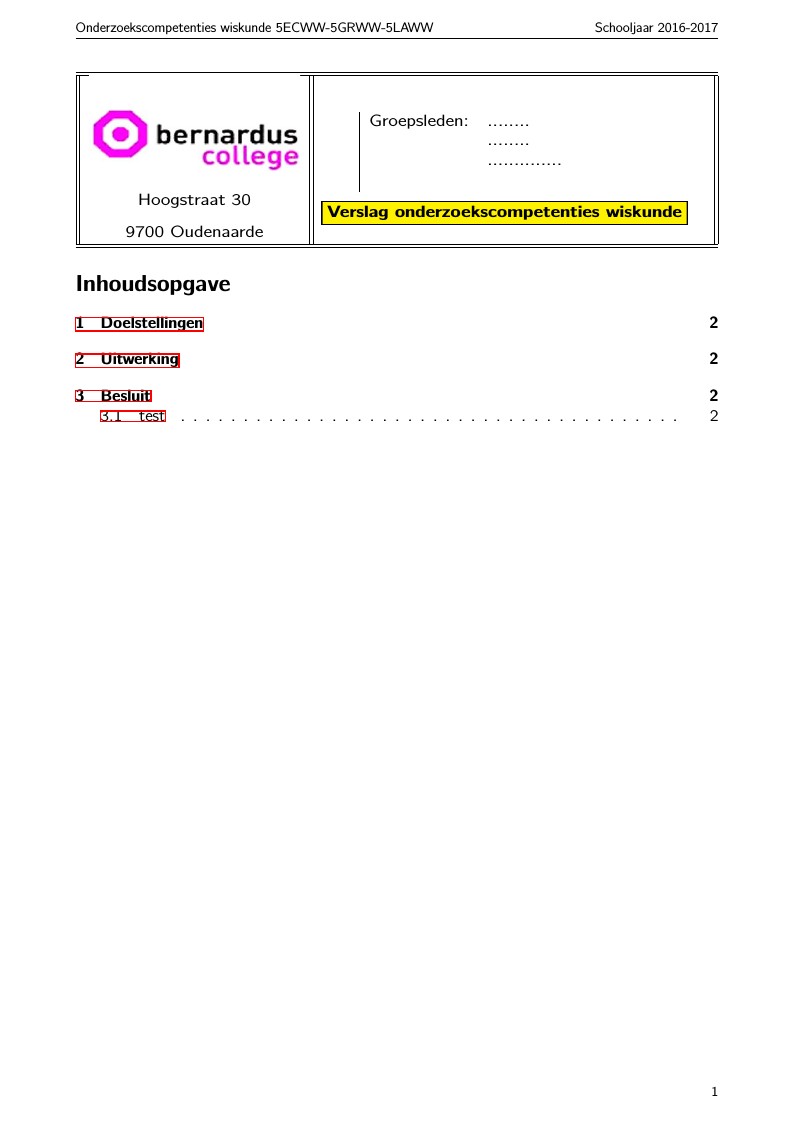
Met dit bestand kan je in latex overleaf aan de slag. Veel succes!
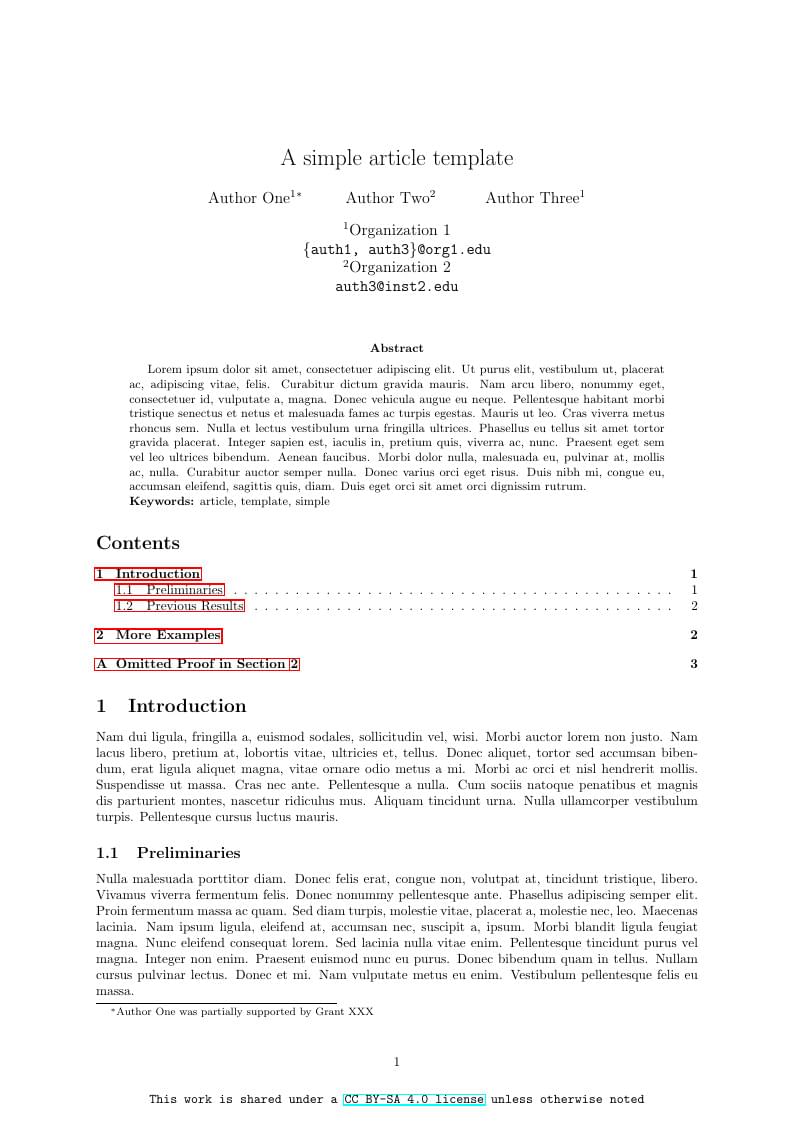
A simple template for writing articles
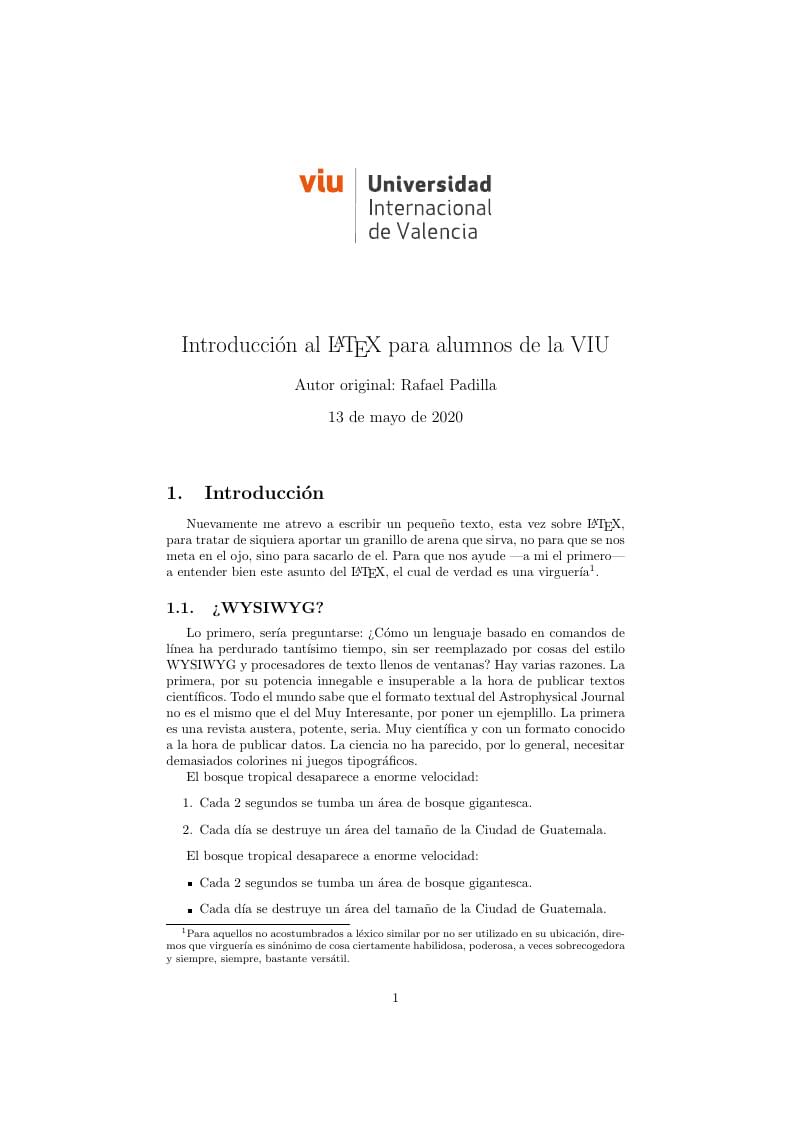
Plantilla para documentos sencillos para la VIU (Universidad Internacional de Valencia)
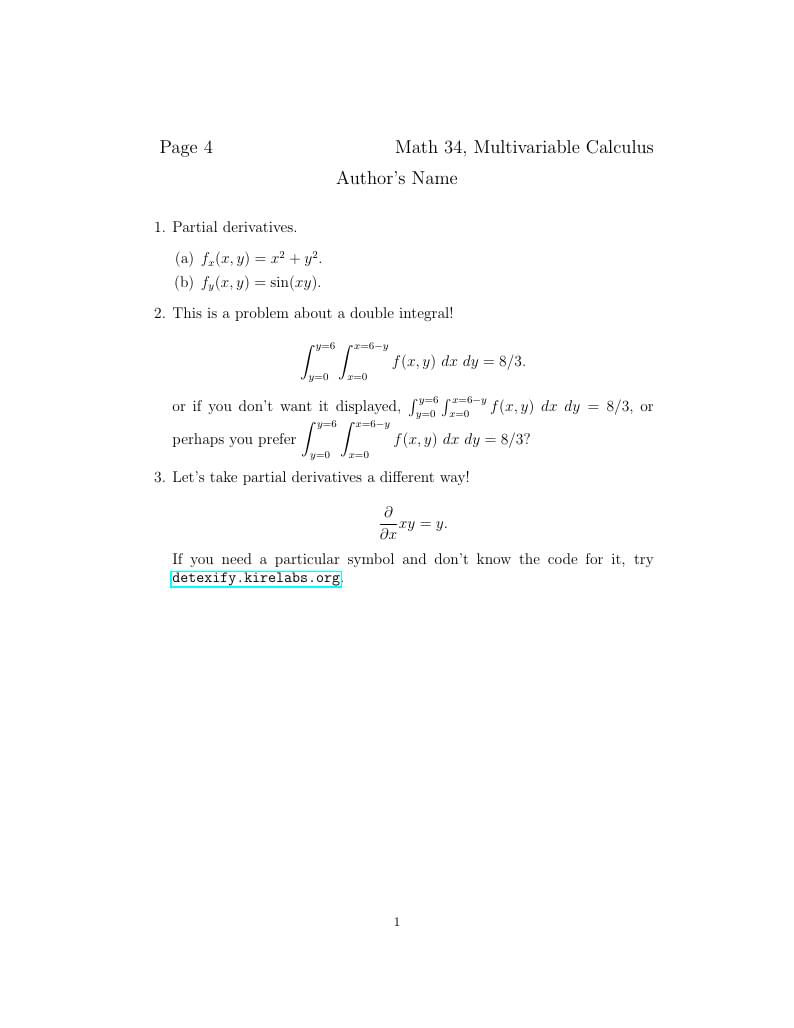
Template for multivariable calculus homework, including code for common formatting.
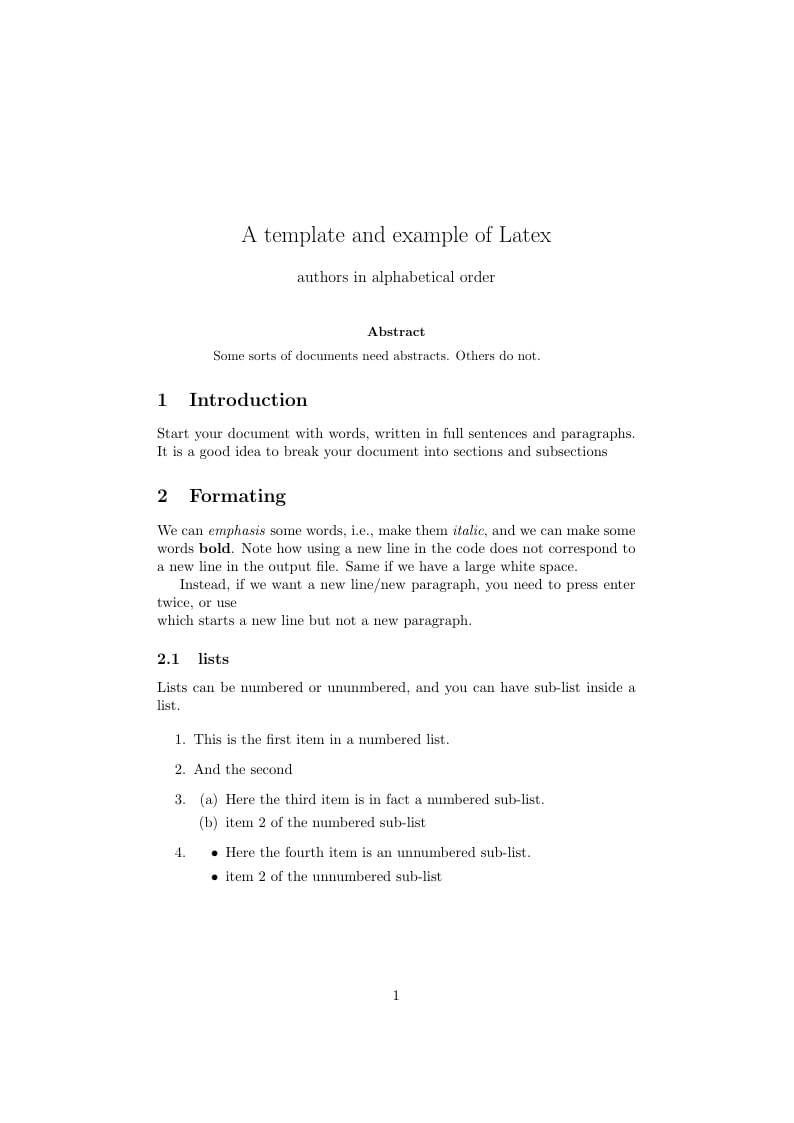
A template to help students at the University of Bristol with their Mathematical Investigations projects
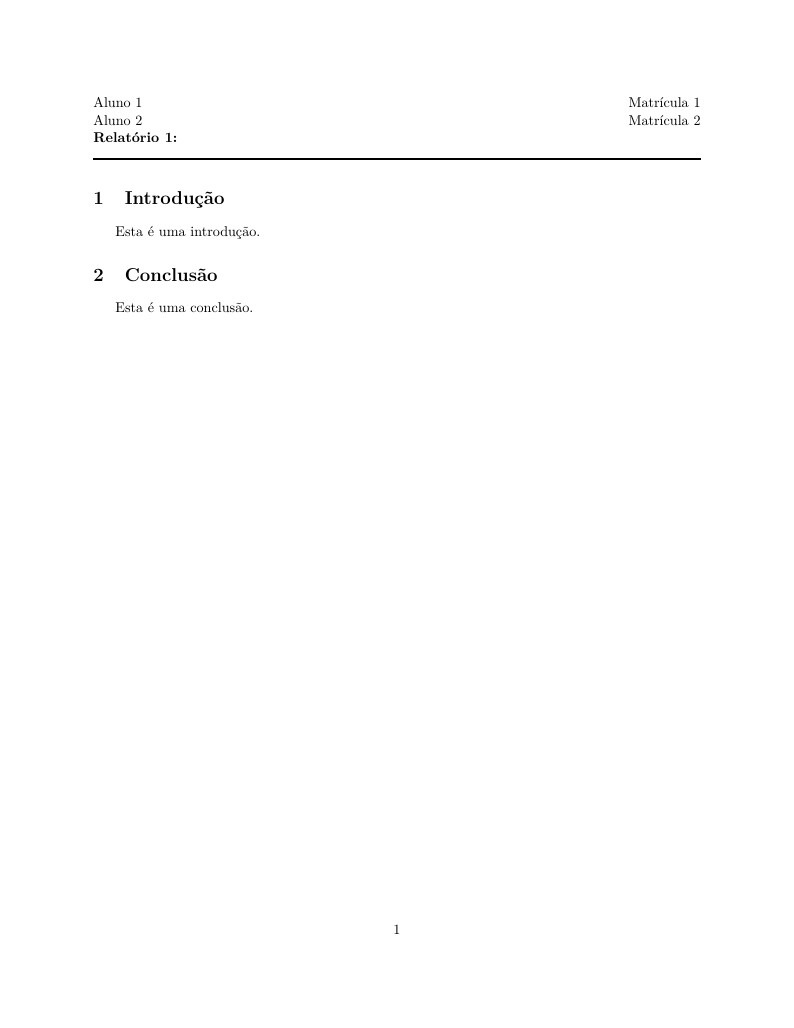
Esse é um template simples para LaTeX pré-configurado para ser usado na Língua Portuguesa (Brasil). O modelo foi projetado para ser compilado usando pdflatex.
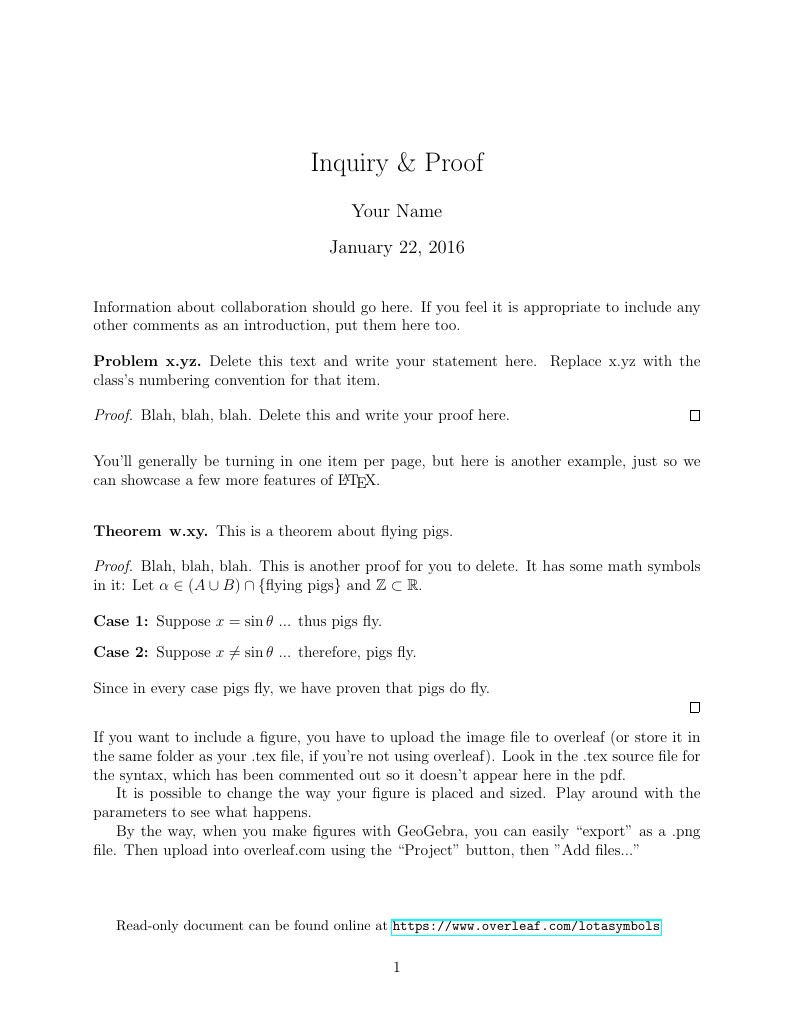
Template for Proof/Problem submissions in our MATH 3318 class.
\begin
Discover why over 25 million people worldwide trust Overleaf with their work.